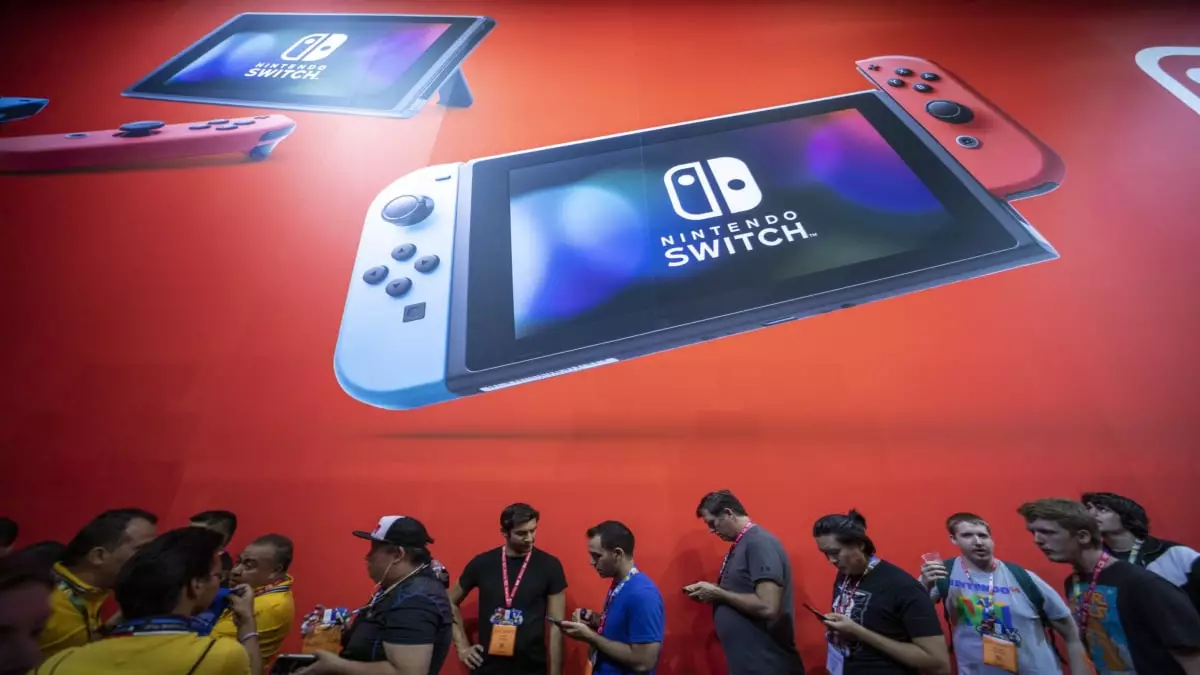The gaming world has long waited for news about the next iteration of Nintendo’s wildly popular console, the Nintendo Switch. A recent announcement by Nintendo has provided significant insights, particularly regarding backwards compatibility and enhancements. This article delves into the implications of this news and examines whether the successor, often referred to as the Switch 2, can meet the expectations set by its predecessor.
In an era where gaming ecosystems are viewed as long-term investments, the confirmation that Switch software will be playable on the successor brings welcomed relief to current Switch users. This move seems to recognize the vast library of games already available and the dedicated community that has engaged with them. By allowing players to access their existing game libraries, Nintendo is not only fostering customer loyalty but also streamlining the transition to the new console.
However, while this decision is commendable, it raises concerns about whether the new console will innovate enough beyond its predecessor. Backwards compatibility has become increasingly common in the gaming industry, seen in competitors like Sony and Microsoft. Hence, Nintendo must ensure that the Switch 2 offers unique features or enhanced experiences to justify it as a true successor rather than just an iterative upgrade.
The confirmation that Nintendo Switch Online will also be accessible on the successor illustrates Nintendo’s commitment to maintaining its online services, which are vital to modern gaming experiences. With the growing emphasis on cloud saves, online multiplayer, and access to classic games, these features ensure that Nintendo remains competitive in an industry that increasingly relies on social connectivity and digital offerings.
Nevertheless, the subscription model itself has faced criticism for lacking in-depth content compared to competitors. As Nintendo continues to expand its online services, it must address these issues. The announcement of new content and improvements to the online experience would further solidify the value of Nintendo Switch Online on the upcoming console.
Consumer Relationships: The Key to Success
During the recent briefing, President Shuntaro Furukawa emphasized the importance of nurturing relationships with consumers. His assertion reflects a shifting industry focus as companies vie for the loyalty of passionate gamers who have invested time and resources into their systems. Connecting with this demographic is vital, especially at a time when hardware sales are slowing, as noted in Nintendo’s latest financial reports.
The idea of leveraging existing Nintendo Accounts to transfer data and relationships smoothly is crucial. By making it easy for players to shift from their current console to the new one, Nintendo can instill confidence in their brand. However, this approach also demands an impressive commitment to maintaining excellent customer service and systems to support this transition without friction.
Market Implications and Financial Performance
The financial update released alongside the announcement revealed a decline in hardware and software sales for the Switch, with Nintendo adjusting its annual sales projections downward. Selling just under 5 million units this past quarter—a significant decrease—suggests that the gaming market may be saturated, and demand for the Switch may be waning.
Furthermore, with cumulative Switch sales reaching 146 million, the upcoming console faces the monumental task of meeting the high expectations of a vast consumer base. A new console in this context is not just about hardware advancement; it is about invigorating the gaming experience and communicating value to players who may feel that their current system has served them well.
The upcoming successor to the Nintendo Switch presents numerous opportunities and challenges for Nintendo. While the commitment to backwards compatibility and the integration of Nintendo Switch Online are promising, the console must deliver originality alongside enhanced experiences. As the gaming landscape continues to evolve, Nintendo’s ability to capture and maintain interest will ultimately dictate the success of the Switch 2. In this competitive market, gamers crave innovation and connection, and it falls on Nintendo to navigate this fork in the road effectively. Whether the successor becomes a landmark in gaming history or merely a stepping stone depends on how Nintendo leverages its legacy while aspiring to redefine the future of gaming.

